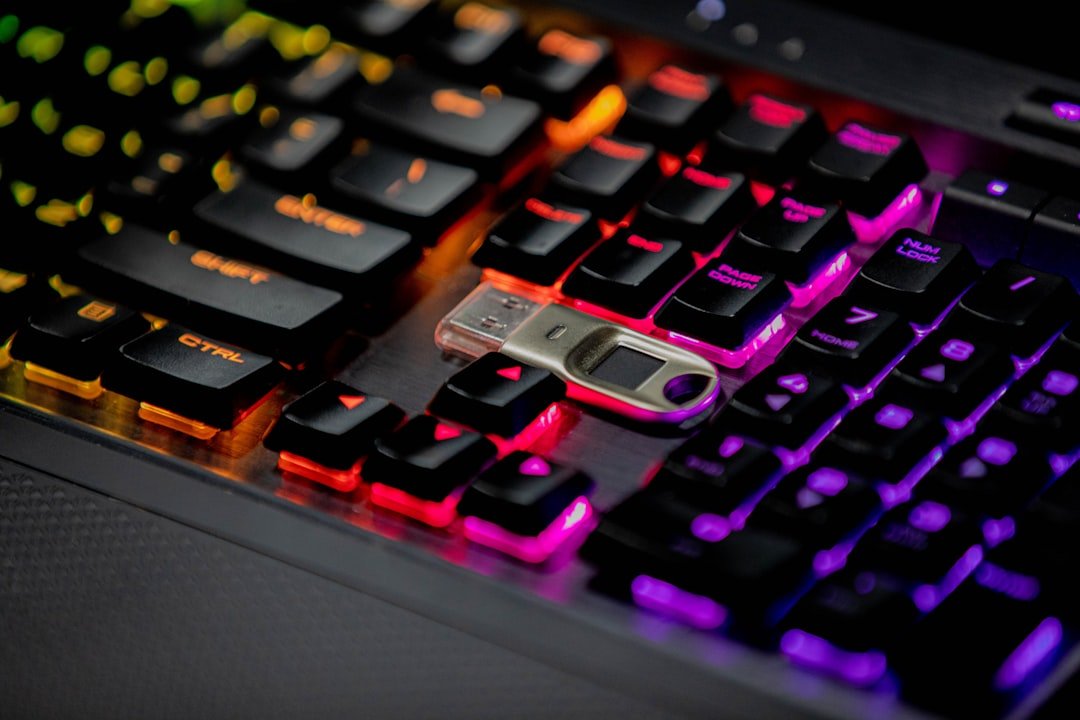Now Reading: Sharing Game Libraries: A Guide for Friends
-
01
Sharing Game Libraries: A Guide for Friends
Sharing Game Libraries: A Guide for Friends

In the ever-evolving landscape of gaming, the concept of game library sharing has emerged as a popular and practical solution for gamers looking to maximize their experience without breaking the bank. As someone who has navigated the world of gaming for years, I find the idea of sharing my game library with friends and family both exciting and beneficial. It allows me to explore a wider range of titles while fostering a sense of community among fellow gamers.
The ability to share games not only enhances my gaming experience but also encourages collaboration and camaraderie, making it a win-win situation for everyone involved. Game library sharing is particularly appealing in an age where digital downloads have largely replaced physical copies. With platforms like Steam, PlayStation Network, and Xbox Live, the process of sharing games has become more streamlined and accessible.
I can easily lend my digital titles to friends, allowing them to enjoy the games I love without the need for them to purchase their own copies. This practice not only saves money but also opens up opportunities for discovering new genres and titles that I might not have considered otherwise. As I delve deeper into the mechanics of game library sharing, I realize that it requires careful planning and communication to ensure a smooth experience for all parties involved.
Key Takeaways
- Game library sharing allows friends and family to share their digital game libraries with each other, saving money and expanding gaming options.
- Setting up a shared library involves enabling the sharing feature on the gaming platform and adding authorized users to the shared library list.
- Establishing ground rules for game library sharing helps to avoid misunderstandings and conflicts, such as setting limits on the number of users or games that can be accessed.
- Communication and coordination are essential for successful game library sharing, including discussing game preferences, scheduling play times, and respecting each other’s gaming time.
- Managing access and permissions involves regularly reviewing and updating the shared library list, removing inactive users, and adjusting permissions as needed.
Setting Up a Shared Library
Setting up a shared library is the first step in embarking on this collaborative gaming journey. The process can vary depending on the platform I choose, but generally, it involves linking accounts and granting access to specific games. For instance, on Steam, I can enable Family Sharing, which allows me to share my library with up to five accounts on ten devices.
This feature is incredibly user-friendly, and I appreciate how it simplifies the process of sharing my collection with friends or family members. Once I’ve set up the initial framework for sharing, I take the time to curate my library. I consider which games are most likely to appeal to my friends and family, ensuring that I’m not just sharing titles that I enjoy but also those that they would find engaging.
This thoughtful approach not only enhances their experience but also encourages them to return the favor by sharing their own games with me. By taking the time to set up a well-organized shared library, I lay the groundwork for a successful and enjoyable gaming experience for everyone involved.
Establishing Ground Rules

Establishing ground rules is crucial when it comes to game library sharing. As much as I want to foster a sense of community and collaboration, it’s essential to set clear expectations from the outset. One of the first rules I establish is regarding the duration of access. I communicate with my friends about how long they can borrow specific titles and whether they need to return them after completing a game or if they can keep them for an extended period. This clarity helps prevent misunderstandings and ensures that everyone knows what to expect.
Since many platforms allow only one user to access a game at a time, I make it clear that if someone is playing a title from my library, others will need to wait until they finish or exit the game.
This rule helps maintain harmony within our gaming group and prevents any frustration that might arise from multiple users trying to access the same title simultaneously. By establishing these ground rules early on, I create a framework that promotes fairness and respect among all participants in the shared library.
Communication and Coordination
Effective communication is the backbone of successful game library sharing. I make it a priority to keep an open line of dialogue with my friends and family members who are part of the shared library. Regular check-ins allow us to discuss which games we’re currently playing, any new titles we’re interested in trying, and any potential issues that may arise.
This proactive approach not only strengthens our relationships but also ensures that everyone feels included in the decision-making process. Coordination is equally important when it comes to managing our shared library. I often create a shared document or group chat where we can list our current games, borrowing schedules, and any upcoming releases we’re excited about.
This collaborative effort helps us stay organized and informed about each other’s gaming habits. By coordinating our efforts, we can maximize our gaming experiences while minimizing any potential conflicts or misunderstandings.
Managing Access and Permissions
Managing access and permissions is a critical aspect of game library sharing that requires careful attention. As someone who values security and privacy, I take the time to review who has access to my library and what permissions they have. Most platforms allow me to customize access levels, so I can choose whether friends can only play certain titles or if they have full access to my entire library.
This flexibility allows me to maintain control over my collection while still sharing it with others. Additionally, I regularly review access permissions as our gaming group evolves. If someone decides to leave the group or if new friends want to join, I make sure to update permissions accordingly.
This ongoing management ensures that my library remains secure while still being accessible to those who genuinely want to enjoy it. By being proactive in managing access and permissions, I create a safe environment for everyone involved in our shared gaming experience.
Handling Disputes and Resolving Issues

Despite my best efforts at communication and coordination, disputes may still arise during game library sharing. When conflicts occur, I find it essential to address them promptly and constructively. One common issue is when two people want to play the same game at the same time.
In such cases, I encourage open dialogue among those involved so we can come up with a fair solution together. Whether it’s taking turns or agreeing on a schedule, finding a resolution that works for everyone is key. Another potential issue could be related to game performance or technical difficulties.
If someone encounters problems while playing a title from my library, I make it a point to offer assistance or troubleshoot together. By approaching these situations with empathy and understanding, I foster an environment where everyone feels comfortable discussing their concerns without fear of judgment. Ultimately, handling disputes effectively strengthens our relationships and enhances our overall gaming experience.
Maintaining the Library
Maintaining the shared library is an ongoing responsibility that requires attention and care. As someone who takes pride in my collection, I regularly check for updates on games and ensure that everything is functioning correctly. This includes verifying that all titles are accessible and that there are no technical issues preventing others from enjoying them.
By staying proactive in maintaining the library, I demonstrate my commitment to providing a positive experience for everyone involved. Additionally, I encourage my friends and family members to provide feedback on their experiences with the games they borrow. Their insights help me identify which titles are popular and which ones may not be worth sharing in the future.
This collaborative approach not only keeps our library fresh but also allows us to discover hidden gems together. By actively maintaining our shared library, we create an engaging environment where everyone can thrive as gamers.
Expanding the Library
As our gaming group grows and evolves, so too does our shared library. Expanding our collection is an exciting prospect that opens up new opportunities for exploration and enjoyment. One way I approach this is by discussing potential new additions with my friends and family members.
We often share recommendations based on our individual tastes, which helps us curate a diverse selection of games that cater to everyone’s interests. I also keep an eye on sales and promotions across various platforms, as these opportunities allow us to acquire new titles at discounted prices. By pooling our resources together, we can invest in games that we might not have considered purchasing individually.
This collaborative effort not only expands our library but also strengthens our bond as gamers who share a passion for discovering new experiences together.
Tips for Successful Game Library Sharing
To ensure a successful game library sharing experience, there are several tips I’ve found helpful over time. First and foremost, clear communication is essential; keeping everyone informed about borrowing schedules and preferences helps prevent misunderstandings down the line. Additionally, being flexible and open-minded when it comes to sharing games fosters goodwill among participants.
Another tip is to regularly review our shared library together as a group. By discussing which games are being played frequently or which ones may not be resonating with everyone, we can make informed decisions about what titles to keep or remove from our collection. This collaborative approach not only keeps our library relevant but also encourages ongoing engagement among all participants.
Potential Pitfalls to Avoid
While game library sharing can be an incredibly rewarding experience, there are potential pitfalls that I’ve learned to avoid along the way. One common mistake is failing to establish clear ground rules from the outset; without these guidelines in place, misunderstandings can quickly arise and lead to frustration among participants. Taking the time to set expectations early on helps mitigate these issues.
Another pitfall is neglecting communication; assuming that everyone knows what’s happening within the group can lead to confusion or resentment over time. Regular check-ins and open dialogue are crucial for maintaining harmony within our shared library experience. By being proactive in addressing potential pitfalls, I ensure that our gaming journey remains enjoyable for everyone involved.
Conclusion and Final Thoughts
In conclusion, game library sharing has proven to be an enriching experience that enhances my gaming journey while fostering connections with friends and family members. Through careful planning, effective communication, and ongoing maintenance of our shared collection, I’ve created an environment where everyone can thrive as gamers. The joy of discovering new titles together and collaborating on our gaming experiences has strengthened our bonds in ways I never anticipated.
As I reflect on this journey, I’m reminded of the importance of community in gaming; sharing my library has allowed me not only to explore new worlds but also to build lasting relationships with those who share my passion for gaming. With thoughtful management and open communication at its core, game library sharing has become an integral part of my gaming life—one that I look forward to continuing as we expand our horizons together in this ever-evolving digital landscape.
If you’re interested in learning more about gaming and staying up to date with the latest trends, you should check out this article on top gaming podcasts and YouTube channels to follow. These resources can provide valuable insights and recommendations for gamers looking to enhance their gaming experience.
FAQs
What is game library sharing?
Game library sharing is a feature that allows users to share their digital game libraries with friends or family members. This means that others can access and play the games that are in your library without purchasing them separately.
How does game library sharing work?
Game library sharing typically works by allowing the owner of the game library to designate specific friends or family members as authorized users. These authorized users can then access and play the owner’s games on their own devices.
Which gaming platforms support game library sharing?
Game library sharing is supported on various gaming platforms, including Steam, Xbox, and PlayStation. Each platform may have its own specific rules and limitations for sharing game libraries.
Are there any limitations to game library sharing?
Yes, there are usually limitations to game library sharing. For example, on some platforms, only one person can access the shared library at a time, and the owner of the library may not be able to play their own games while someone else is using the shared library.
Can I share my entire game library with a friend?
The ability to share your entire game library with a friend depends on the specific rules and limitations set by the gaming platform. Some platforms may allow you to share your entire library, while others may only allow you to share specific games.
Is game library sharing legal?
Game library sharing is typically legal as long as it is done in accordance with the terms of service and user agreements set by the gaming platform. It is important to review the rules and limitations for game library sharing on your specific platform to ensure that you are not violating any terms of service.



























